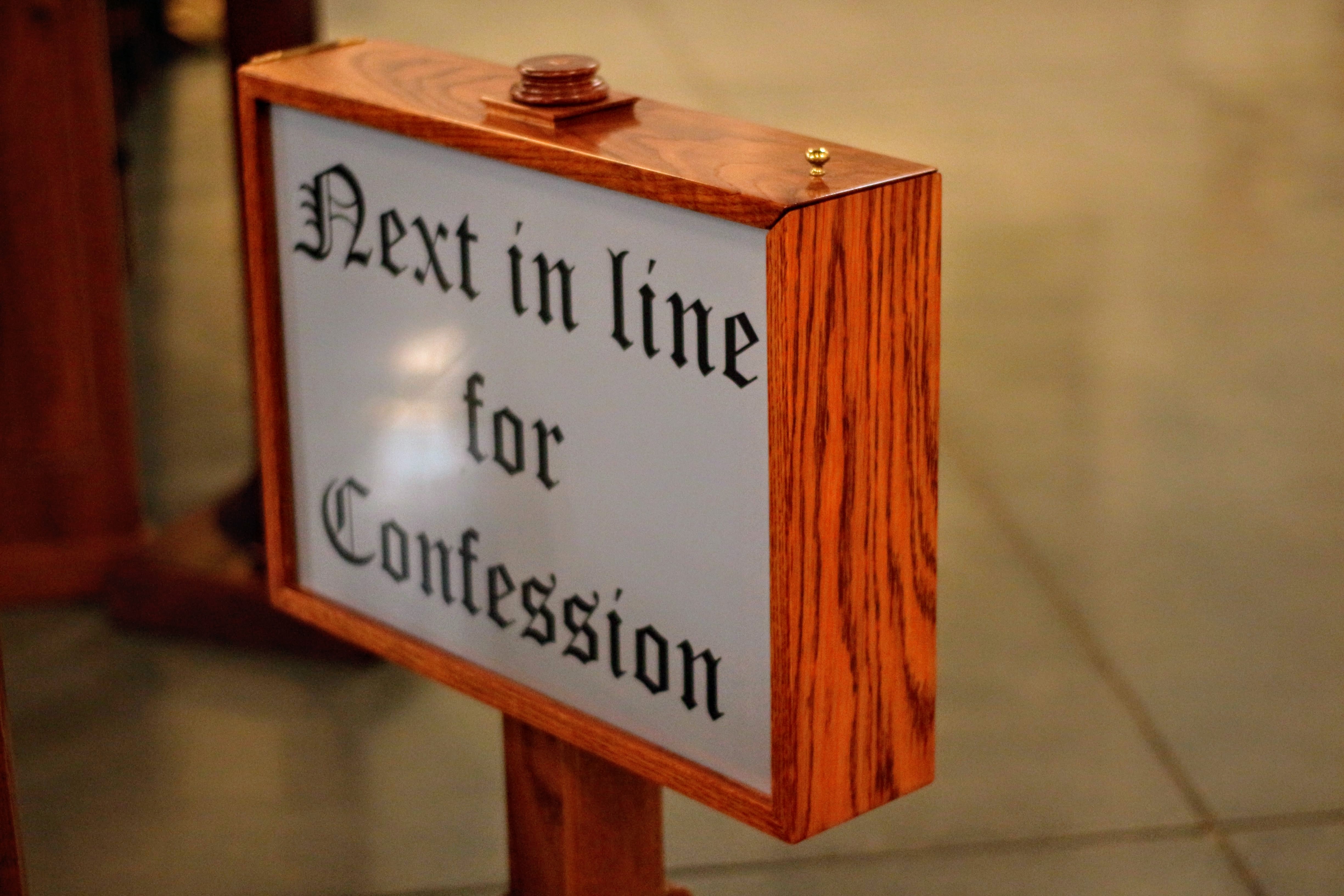“Few things accelerate the peace process as much as humbly admitting our own wrongdoing and asking forgiveness.” —Lee Strobel
As someone who was born and raised Catholic, the sacrament of confession is a normal and necessary thing for me. There is nothing that gives me more confidence in God’s love, mercy, grace and forgiveness than a priest acting in His stead to absolve me from my sins as he was given the authority to do (Matthew 18:18). Frederick Buechner reminds us what confession does for our relationship with God: “To confess your sins to God is not to tell [God] anything [God] doesn’t already know. Until you confess them, however, they are the abyss between you. When you confess them, they become the bridge.” We do not go to confession because God needs us to. We are called to go because God knows how the human heart and mind function. Confession is necessary.
Confession is a gift
Confession is as essential to the life of a Catholic as cleaning laundry is to the average human. I do not enjoy doing laundry. I find the process to be time-consuming and tedious. It would be beneficial to my life and wardrobe if there was a way to keep my clothes clean or snap my fingers and my clothes clean themselves. Instead, I must clean my clothes every single week. It is especially frustrating when I am all done washing and drying my clothes only to discover a stain when I am folding. Had I pretreated this stain, I could have prevented it from ruining my garment. In the same way our clothes need to be taken care of, so does our relationship with God. “Confession is the soul’s bath. You must go at least once a week. I do not want souls to stay away from confession more than a week. Even a clean and unoccupied room gathers dust; return after a week and you will see that it needs dusting again!” (Padre Pio)
Why not confess directly to God?
There are plenty of great theologians who answer this question and explain the theology behind the sacrament of confession. St Augustine summarizes our need: “In failing to confess, Lord, I would only hide You from myself, not myself from You.” There is a special grace that comes to us through the sacraments. “The sacraments are efficacious signs of grace, instituted by Christ and entrusted to the Church, by which divine life is dispensed to us” (Catechism of the Catholic Church 1131). Confession is a sacrament of healing, “by which divine life is dispensed to us,” that restores the grace [presence of God] that we have rejected through our sin.
We need confession
Our sins do not make God love us less. Rather, they take away our ability to love. “...Only in the knowledge of God’s plan for man can we grasp that sin is an abuse of the freedom that God gives to created persons so that they are capable of loving him and loving one another” (CCC 387). Sin does significant damage to our relationship with God, with others, and to our understanding of who God created us to be. Confession is an opportunity for us to take the next step in our relationship with Him. If you compare it to other relationships, confession has a similar effect. Consider a child who admits to a parent that she broke their favorite dish, or a student who admits to a teacher that he cheated on a test, or a person who admits one's shortcomings to a friend. All of these circumstances open the door for love in its truest form, as a receiver and a giver. “Confession is an act of honesty and courage — an act of entrusting ourselves, beyond sin, to the mercy of a loving and forgiving God” (St. John Paul II).
Confession, then what?
Confession is only the beginning. Augustine reminds us, “The confession of evil works is the first beginning of good works.” When we walk out of a confessional and find ourselves tempted to sin again, it means we have a stain that needs to be removed. We are called to consider what is driving us to continue to choose sin that we know hurts our relationship with God and with others. “Do not be afraid to go to confession! When one is in line to go to confession, one feels all these things, even shame, but then when one finishes, one leaves free, grand, beautiful, forgiven, candid and happy. This is the beauty of confession” (Pope Francis).
Mary Morasso is a mother and parishioner of SS. Cyril and Methodius Parish in Sterling Heights. She holds a bachelor's degree in pastoral theology from Sacred Heart Major Seminary and has taught theology at the high school level.










